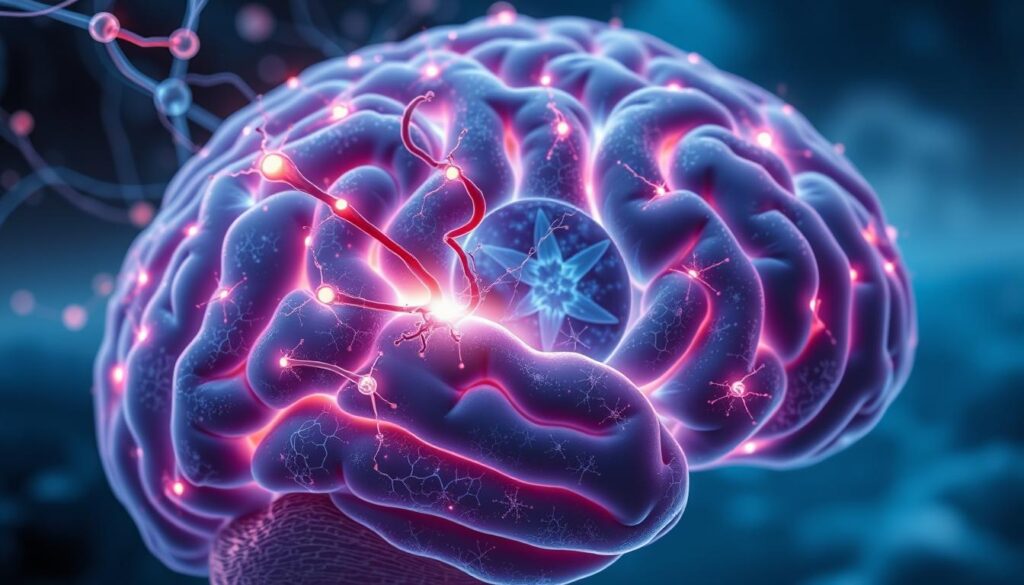How to Remember Things Better Every Day
Struggling to recall important details? Find out How to Remember Things Better Every Day with our actionable listicle advice.

Ever walked into a room and forgot why? Or struggled to recall a name moments after hearing it? You’re not alone. Forgetfulness happens to everyone, but your brain has incredible potential. Neuroscientist Lisa Genova explains in her book Remember: The Science of Memory that memory works in four steps: attention, encoding, storage, and retrieval.
Your brain can store up to 2.5 petabytes of data—that’s like three million hours of TV! The key is training your working memory just like a muscle. Small daily habits make a big difference.
This guide shares simple, science-backed ways to sharpen recall. No magic tricks—just practical steps anyone can use.
Key Takeaways
- Forgetfulness is common but fixable with the right techniques.
- Memory relies on attention, encoding, storage, and retrieval.
- Your brain has massive storage capacity—use it wisely.
- Daily habits strengthen memory over time.
- Expert insights help optimize how you retain information.
Why Do We Forget Things So Easily?
Why does your phone disappear the moment you set it down? Blame your *brain*’s wiring. Memories form through neural circuits—paths linking sights, sounds, and emotions. Without reinforcement, they fade like a Post-it note losing its stickiness.

The Science Behind Memory Formation
Lisa Genova compares *working memory* to a 10-second timer. If you don’t replay a detail—like where you left your keys—it vanishes. Handwriting notes helps, too. A 2014 Princeton study found it boosts retention by 29% over typing.
Recall fails when cues change. Walk into the *kitchen* for scissors but open the fridge instead? Your *brain* expected visual triggers that weren’t there.
Common Everyday Reasons for Forgetfulness
Multitasking is a myth. *97%* of people overestimate their ability to juggle tasks. Each *phone* notification hijacks *attention*, erasing fragile memories.
Five stealthy disruptors:
- Stress hormones scramble neural signals.
- Poor nutrition starves brain cells.
- Routine gaps (like misplacing glasses).
- Information overload clogs mental storage.
- Sleep loss—Ohio State research links *night* rest to toxin clearance.
Ever forget why you opened an app? Your *brain* prioritizes new input over idle thoughts. The fix? Slow down and let memories solidify.
How Memory Works: A Quick Brain Primer
Why do some memories stick while others vanish instantly? Your brain processes information in stages, like a factory assembling ideas. Neuroscientist Lisa Genova calls attention the “neurological language” that starts this process. Without it, memories never form.

The Role of Attention in Memory
Think of attention as a camera lens. It focuses on specific details while blurring the rest. A 2014 study found handwritten notes boost retention by 29%—typing lacks this focused engagement.
Emotions shortcut this system. The amygdala stamps intense experiences directly into long-term storage. That’s why you recall childhood birthdays but forget yesterday’s lunch.
Short-Term vs. Long-Term Memory
Your working memory holds about seven items for 20–30 seconds (Miller’s Law). Phone numbers like 555-867-5309 stick because we chunk them. Random digits? Gone in seconds.
During deep sleep, your brain replays the day’s events, moving key information into long-term storage. London taxi drivers’ hippocampi expand as they memorize streets—proof of neuroplasticity.
“Memory is not a recording device; it’s a storytelling machine.”
Two encoding strategies:
- Maintenance rehearsal: Repeating a phone number.
- Elaborative rehearsal: Linking facts to personal stories.
The latter creates stronger neural pathways. Your brain thrives on connections, not isolated words.
Practical Techniques to Remember Things Better
Memory lapses feel frustrating, but science offers simple fixes. Whether you’re forgetting names or misplacing essentials, these *techniques* rewire your *mind* for better retention. No apps or gimmicks—just proven strategies.

Use the Cues Around You
Your *brain* thrives on context. Place your keys by the *coffee* maker? Link the action to the smell. A 2021 study found scent-based cues boost recall by 40%.
Pay Attention—It’s the Golden Ticket
Distraction kills memory. When meeting “Analytical Andrew,” *pay attention* to his blue tie. Visual anchors create neural hooks. Multitasking drops accuracy by 50%—silence notifications.
Write It Down (Yes, It Really Helps!)
Handwriting forces focus. Use Asana’s OKR framework for structured *notes*:
- Objective: “Memorize client preferences.”
- Key Results: “Review notes before calls.”
Teach It to Someone Else
“Expecting to teach material boosts retention by 28%—your brain organizes information more logically.”
Visual Linking for Stronger Recall
Imagine your 2pm *meeting* client sitting on a giant clock. Absurd? That’s why it works. Competitive memorizers use this *technique* for 70% better recall.
Develop Routines to Reduce Forgetfulness
Four steps to automate memory:
- Identify pain points (e.g., lost keys).
- Design cues (hook by the door).
- Use reminders: “After *coffee*, check my *to-do list*.”
- Track progress with Habitica.
Chunk Information for Easier Memorization
Break *numbers* into groups. Phone *numbers* like 867-5309 stick because they’re chunked. World Memory Champions use this for 500-digit sequences.
| App | Best For | Recall Boost |
|---|---|---|
| Anki | Medical students | 35% |
| Brainscape | Language learners | 28% |
| Quizlet | Classroom *reading* | 22% |
Pair these *techniques* with lifestyle tweaks (Section 5) for maximum impact. Your *mind* is capable—just give it the right tools.
Lifestyle Changes to Boost Your Memory
Small lifestyle tweaks can supercharge your brain’s recall power. Science proves that how you live directly impacts memory retention. From workouts to meal plans, here’s how to optimize your daily habits.
Exercise: A Total Brain Activity
Your brain thrives on movement. A BMJ study found 150 minutes of weekly exercise lowers dementia risk by 31%. HIIT workouts (20 mins, 3x/week) spike BDNF—a protein that fuels neural growth.
Prioritize Sleep for a Sharper Mind
Deep sleep clears toxins like a nightly reset button. Aim for 7–9 hours in a 65°F room. Try the 4-7-8 breathing method: inhale for 4 seconds, hold for 7, exhale for 8.
Reduce Stress to Improve Recall
Chronic stress shrinks the hippocampus. Combat it with:
- Box breathing: 4-second cycles to calm nerves.
- Forest bathing: 22-minute walks cut cortisol by 28%.
Eat a Brain-Friendly Diet
The Mediterranean diet slows cognitive decline by 35% (NIH). Top 10 foods for brain health:
| Food | Benefit |
|---|---|
| Walnuts | Omega-3s for neural repair |
| Blueberries | Antioxidants shield memory |
| Turmeric | Curcumin fights inflammation |
Stop Multitasking—Focus Is Key
MIT research shows multitasking drops productivity by 40%. Train your brain to monotask:
- Use the Pomodoro technique (25-minute focus blocks).
- Block distracting apps during work.
“Single-tab browsing doubled my recall speed in meetings.”
When to See a Doctor About Memory Lapses
Memory slips happen, but certain patterns signal deeper issues. Occasional forgetfulness—like misplacing your keys—is normal. However, frequent memory lapses that disrupt daily life may warrant a professional opinion.
Signs That It’s More Than Just Forgetfulness
The Alzheimer’s Association flags these red flags:
- Getting lost in familiar neighborhoods.
- Repeating the same questions within minutes.
- Struggling to recall a close family member’s name.
Normal aging might mean forgetting a new coworker’s name. Concerning signs include forgetting your sister’s name or how to use a microwave.
What to Expect During a Cognitive Evaluation
Doctors use tools like the MoCA test (Montreal Cognitive Assessment) to assess:
- Clock-drawing tasks (tests spatial awareness).
- Delayed recall of words or objects.
- Abstract thinking exercises (e.g., explaining proverbs).
“Early detection of cognitive decline allows for better management and planning.”
Advanced cognitive evaluations may include:
- Biomarker tests: Amyloid PET scans or spinal fluid analysis.
- Genetic testing: APOE4 gene screening for Alzheimer’s risk.
- Blood work: Rules out vitamin deficiencies or thyroid issues.
3 Steps If You’re Concerned:
- Track symptoms for 2–4 weeks (note frequency and triggers).
- Bring a family member to appointments for additional insights.
- Request a full cognitive evaluation, including blood tests.
Conclusion
Sharpening your memory isn’t about magic tricks—it’s science. Use the MEMORY framework to build lasting recall: Mindfulness, Environmental cues, Mediterranean diet, Organized routines, Repetition systems, and Yoga/exercise. Small steps create big results.
Start with one technique, like habit stacking. Pair new habits with existing ones—review notes after morning coffee. Your brain adapts faster when changes feel natural.
Stay consistent. Just 10 minutes daily strengthens neural pathways. Track progress with apps like Habitica or a simple journal. Celebrate small wins—they add up.
Your brain is designed to learn and retain. With the right tools, you’ll notice improvements in weeks. Ready to unlock your full potential? Let’s get started.




